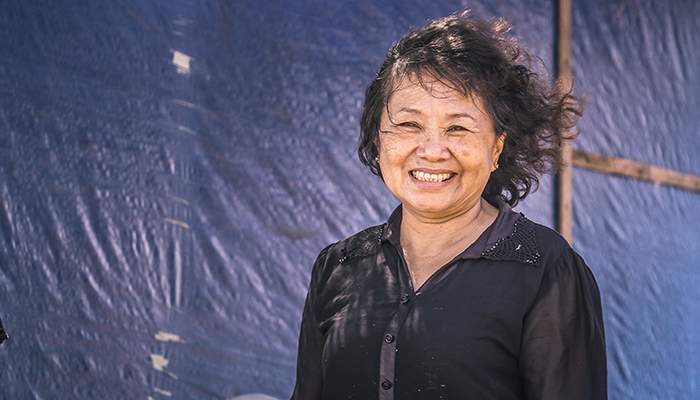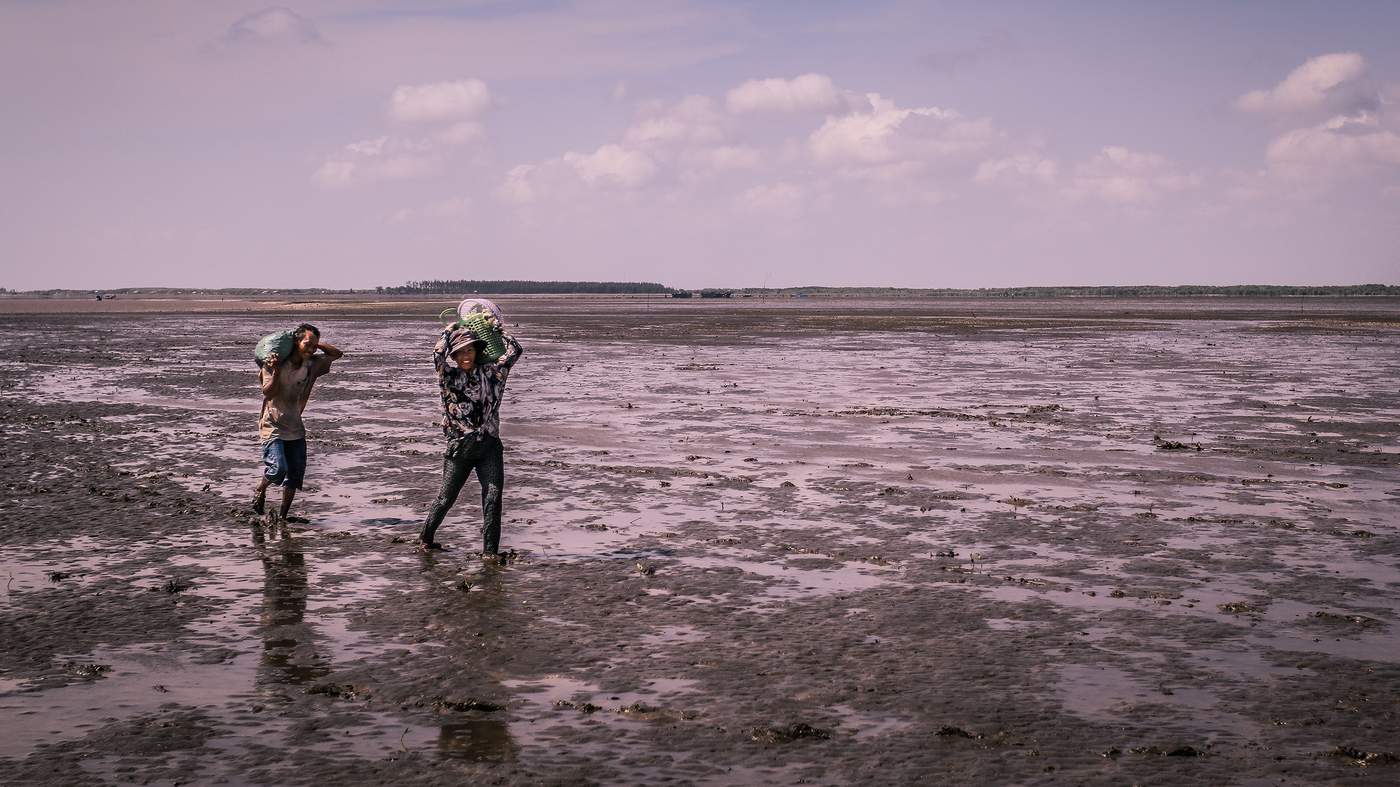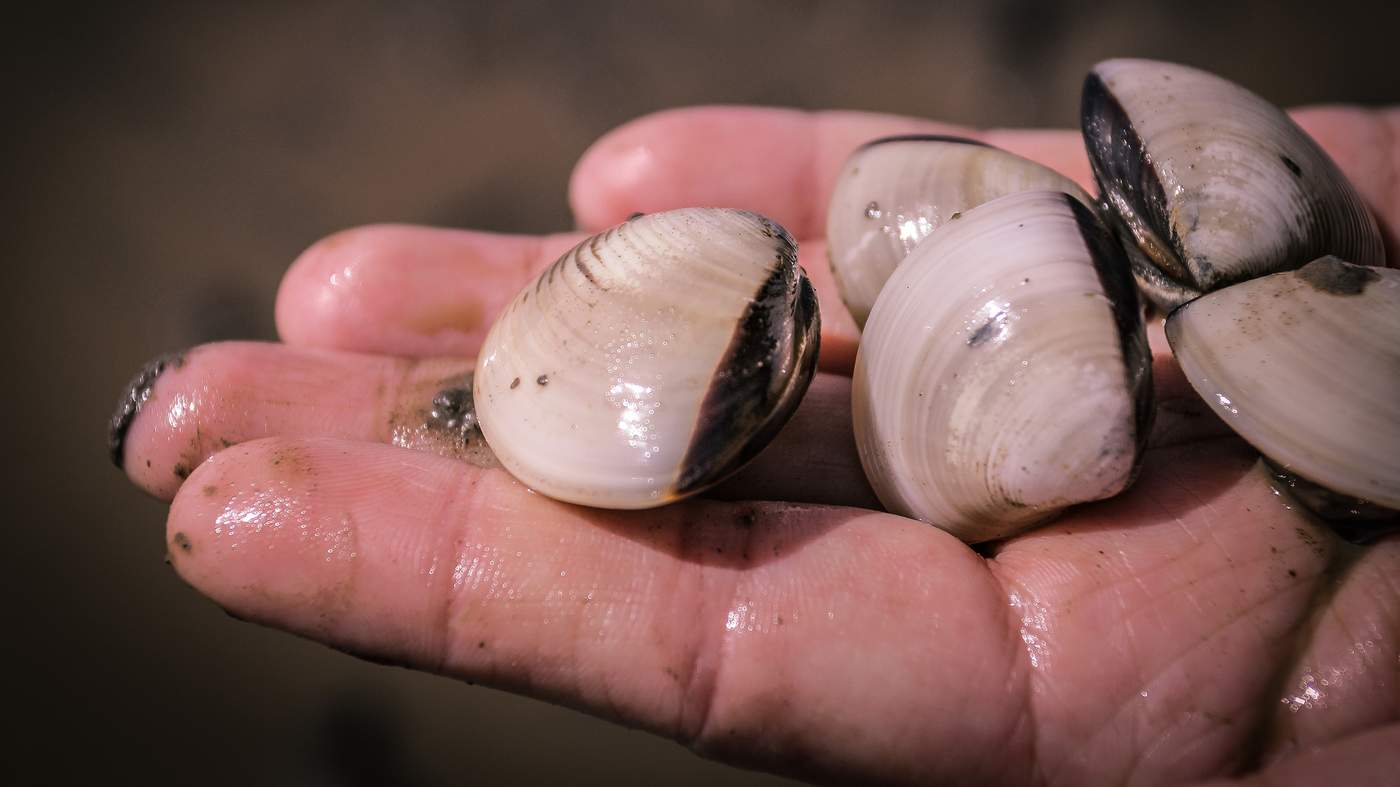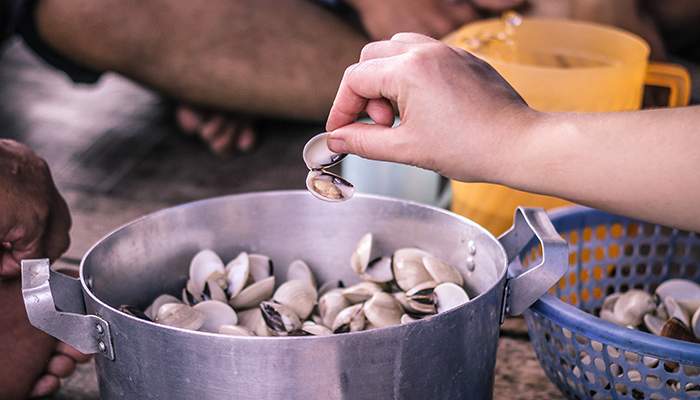Over the past decade, through gentle persuasion and careful education, Mrs Nga has steered the fishery onto a new, sustainable course.
During her six years as the region’s Fisheries Director, she’s been instrumental in establishing an effective cooperative-based management system that sees community members collaborate with one another as equal shareholders to assure the future of the fishery.
The formation of eight fishing cooperatives comprising over 9000 community members has allowed villagers to take ownership of their marine resources.
Clam Committee
A locally elected ‘clam committee’ now consults the local government to agree fishery management strategies each year. Newfound motivation has also seen fishers attend training workshops on environmental management.
Using only their hands and small hand-rakes, each cooperative takes fortnightly turns to gather the clams, which lurk inches below the surface of the mud at low tide.
Each member of a cooperative is given a ‘ticket’ or quota, detailing the number of clams they are allowed to harvest. Around a third of members catch their own quotas while the very old and young sell their tickets to other members for mutual benefit.
Some challenges along the way
Plans to establish a local school bus and a clam processing factory on-site fell short “Widespread clam deaths in 2006 meant there was insufficient profit to go through with those plans” explained Mrs Nga.
The clam deaths she mentions are caused by temperature ‘shock’ and are an inevitable consequence of climate change in this environmentally sensitive species.
The proposed upstream development of hydroelectric dams and by the diversion of water to surrounding shrimp farms also threaten to disrupt the future hydrology of the Ben Tre mudflats, with as yet uncertain impacts.
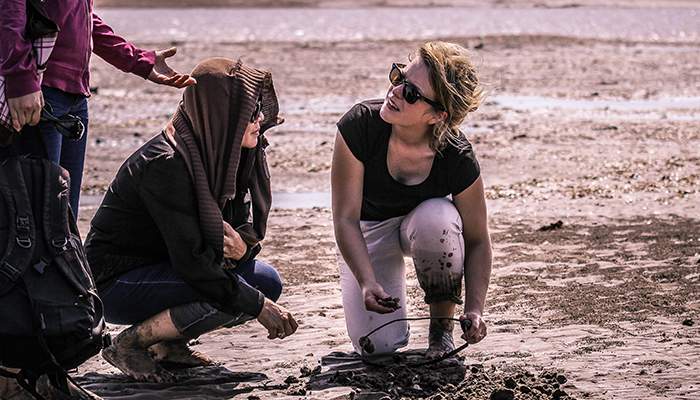
Lucy Anderson, former MSC Science Communications Manager and article author, with community members.
Up in the watch tower, the young children of one of the fishers greeted Mrs Nga with excitement. Families stand to gain from the fishery, receiving extra quotas for each child born.
Yet the quota system has also served as an unconventional form of population control as families with more than two children see their benefits cut.
Thanks to the efforts of Mrs Nga, and the pride the fishing communities are taking in implementing more environmentally conscious management strategies - the future is looking bright for the next generation in this sleepy corner of Vietnam.
Share this story:
All images copyright Steve Rocliffe


